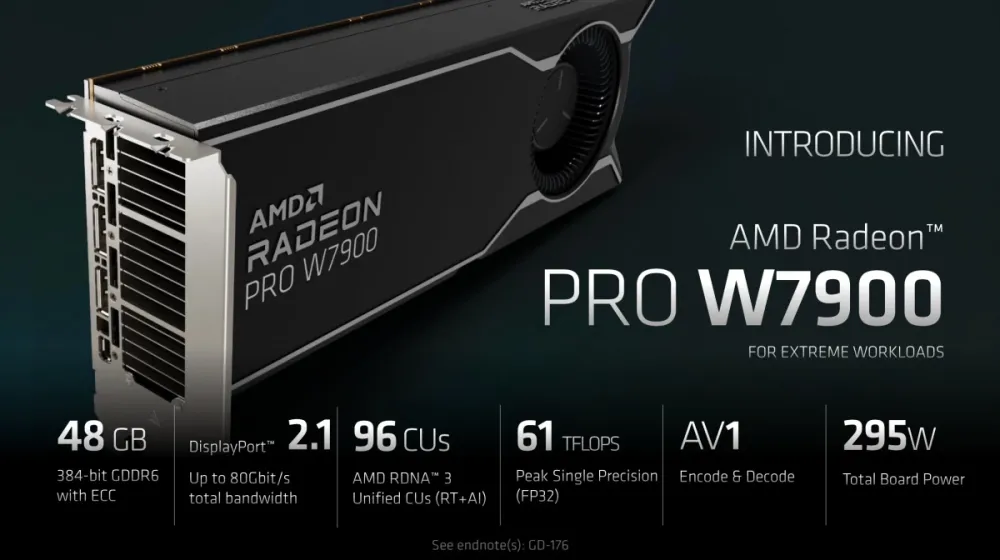AMD provides ROCm and PyTorch support for Radeon Pro W7900 and Radeon RX 7900 XTX
Recently, AMD unveiled the ROCm 5.7.1 driver update tailored for Ubuntu Linux, introducing support for PyTorch 2.0.1 for the Radeon Pro W7900 and Radeon RX 7900 XTX graphics cards, both grounded in the RDNA 3 architecture. This initiative empowers developers to harness the PyTorch library, deploying AMD’s flagship GPUs with memory capacities of 24GB and 48GB for Artificial Intelligence (AI) and Machine Learning (ML) applications.
Originated by Facebook AI Research, PyTorch is a venerated deep-learning library. As an open-source instrument, it has garnered commendation across the industry and secured extensive backing from both CPU and GPU manufacturers. AMD’s initial embrace of integrated PyTorch support was somewhat dilatory, especially concerning consumer-grade Radeon and Radeon PRO graphics cards. However, with the advent of ROCm 5.7.1, a significant paradigm shift is evident.

The exclusive support for flagship graphics cards also considers that AI applications, such as Large Language Models (LLMs), demand substantial memory capacities. Concurrently, this strategy aims to optimize AMD’s sales of high-end graphics cards. While the Radeon Pro W7900 and Radeon RX 7900 XTX come with a premium price tag, they are markedly more economical than computational cards designed for data centers. By extending AI and ML support to consumer-grade products, AMD envisions a synthesis between professional and gaming utilities. Their aspiration is to cultivate a robust AI ecosystem, fortifying open-source platforms, thereby paving the way for enhanced cost-effectiveness and broader utilization scopes.
Reports from April alluded to the imminent arrival of the ROCm SDK on the Windows operating system, along with expanded support for consumer-grade Radeon graphics cards. Subsequently, Dr. Lisa Su, AMD’s Chief Executive Officer, affirmed the company’s future commitment to augment GPU support under ROCm, integrating a wider range of consumer-grade Radeon graphics cards and fostering collaborations with the community to bolster user support.






